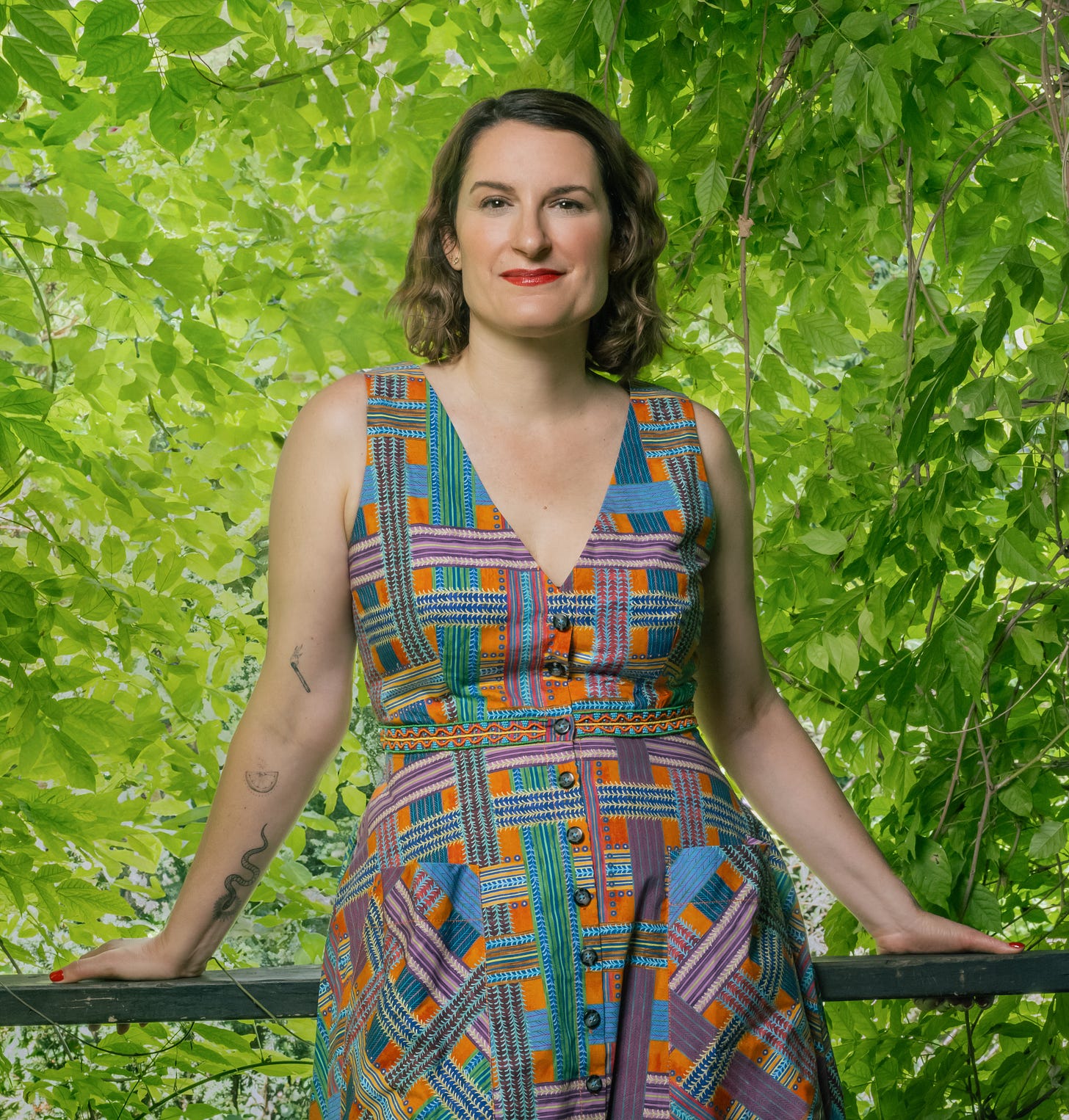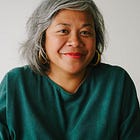Why there's no "right way" to become a mom (and why that's liberating)
Ruthie Ackerman on her new book "The Mother Code: My Story of Love, Loss and the Myths That Shape Us"

I just barely became a mom. I slid into pregnancy at age 42. I never imagined it was in the cards. And for many years before that, it was barely a priority. This may be why I find tradwives so unrelatable — as opposed to feeling like motherhood was pre-ordained, it often felt more like a pursuit best left to other people.
That ambivalence is part of what drew me to Ruthie Ackerman’s new book, “Mother Code: My Story of Love, Loss and the Myths That Shape Us.”
Ruthie’s own path to becoming a parent involved wrestling with her ambivalence about motherhood, as well as with a family history of maternal abandonment. Her story touches on abortion, a divorce, a remarriage and a range of fertility treatments to eventually have a child.
While The Mother Code traces in rich detail Ackerman’s personal experience of becoming pregnant, it also delves into the complex social and cultural pressures women face when deciding to have kids, and the effects of personal and intergenerational trauma on that decision.
We chatted recently about the book. Here is a slightly edited version of our conversation.
What has maternal ambivalence meant to you – and how has it evolved for you?
I was waiting for this “Aha” moment to hit me, when I would just know that it was time to have a kid.
I thought that everyone else had this feeling from the time they were young, and were in the “Hell, yes!” camp about wanting children. And then there were a few people I knew that were in the “Hell, no!” camp. I felt like I was somewhere in the middle. So I thought that there was something wrong with me for the longest time.
There's a scene in the book where I go to my therapist, and she says, “On a scale of zero to 100, how badly do you want a kid?”
And I blurt out: 55%!
Why would you annihilate your dreams and your identity for a 55% certainty that you wanted children? Of course, I never doubted the idea that I would need to annihilate my dreams or my identity. I'd been told my whole life that that was the definition of motherhood.
I never questioned whether it had to be that way.
So when I said that 55% and I was filled with all of this shame, my therapist said,
“Why isn't that enough? Your mind or your body is telling you that you want a child a little bit more than you don't. So that's telling you something.”
It took me researching my book to figure out that maternal ambivalence is totally normal.
I think we do a disservice to women – and everyone – when we say there was going to be an alarm clock or a sign or a signal of some sort.
Please “like” this post via the heart below and restack it on Notes if it resonates with you. It’s the best way to help others find our work.
For the price of a coffee, you can upgrade to paid for just over $4 and get access to all our paid posts, chats, and book club, AND be part of something that Joe Rogan would hate. Win!
You say it in the book: We become a mother through the act of mothering. And I feel like that speaks so deeply to what you're saying: that we can't be sure of it until we're just doing the work of it.
The “Aha” moment that this is the right path for me happened once I had my daughter. Through the kind of commitment of being a mother, and the caretaking of her, I realized that this feeling grew into something called love.
Someone asked me: Was it the right decision to decide to try to become a mom?
And I can say it was the right decision for the person I am today, but I can't say whether it's the right decision for the person I was back then.
I think that if I had decided at that point to not become a mom, I would have had a great life, and now I have a great life, and I think it's really important not to have this right or wrong, because it's so debilitating to all of us.
It presumes that we have more information than we have at the moment. I feel like this is a story about just taking the next right action, which you can only know in the moment that you're making the decision. That's part of the idea of the “mother code.”
Right. The title of the book, The Mother Code, was because I thought there was a flaw in my genetic code. I thought that I was destined or cursed, or whatever you want to call it, to abandon my children or child – just like my great-grandmother, my grandmother and my mother had done.
I think what was really terrifying about it is uncertainty. I was trying to somehow shortcut uncertainty.
You start the book talking about the stories you grew up with around the earlier generation of women in your family who abandoned their kids. Your mother had her own history of mental illness. How do you think about your own mental health as it impacts your ability to show up for your child?
So, yes, the first line of my book is, “I come from a long line of women who abandon their children.” And so mental health and women in my family was always part of our family lore or family mythology. When I started writing this book, I was trying to get to the bottom of the origin story of mental illness in my family.
What I came to discover, though, was a few things. One, my great-grandmother and my grandmother were never labeled or diagnosed. So anything that I know about their mental health is hearsay. My mother has been diagnosed but her diagnoses are so complicated to be almost meaningless, because the doctors have said medicine doesn't help and there's no cure. So in some ways, this is just her, for better and worse.
I had to do my own investigation into trying to figure out the limitations under which my ancestors mothered. What was society like? What were the cages that they were put into when they were mothering?
Who was I to judge who they were, and based on today's standards?
My great-grandmother came here through Ellis Island when she was six years old. She only spoke Yiddish. She never went back to school. There were all these family traumas. And so her choices to marry 14 times – from what I figured out through census records and marriage and death records – were based not on looking for money for the sake of money – or as my family says gold digging – but for security and safety.
Her daughter Ruth, who I was named after — my grandmother — was looking for her own forms of safety.
I spent a long time waiting for the mental illnesses that struck the women in my family to come for me. I've written a lot about the idea that it's a curse. That you can't outrun your destiny, and when I least expect it, it's going to befall me.
But my life is so different from the women in my family. Even just the fact that my mother had me when she was 22 and I had my daughter when I was 43. The support systems – not societally, necessarily – but the support systems I've been able to create for myself have allowed me to feel secure and safe in a way that I'm not waiting for every shoe to drop now.
One more thing I'll say about mental health stuff: We have five more embryos left over. I've thought about having another child. But the stability I've been able to create for myself — I don't know that it could hold with another child. So I have a lot of fears about having another child, for that reason, because it feels like I've gotten away with something here. It feels so fragile, and let's not push for more.
One thing I really took from the book is that there's a difference between the process of becoming pregnant and the process of becoming a mother. I'm curious how you would define those differences?
It feels like a very different process for me personally, because for me, becoming pregnant was still stuck in the shoulds. I should be getting pregnant. There was a certain way to get pregnant that was the right way, the natural way, and that each step of the way, there was something wrong with me because I couldn't do it the right way.
The becoming a mother part was where I was trying to untangle the shoulds. And the chapter called Outlaw Motherhood broke something open for me. Originally, the question I was asking was, Should I have a child? And then, in that chapter, it became, Can being a mother be a radical act, and who are the models? What are the models for mothering in a revolutionary or radical way?
What does it mean for you to be an outlaw mother?
It’s an aspiration. I don't have to make the bento box lunch or get them the perfect pink chicken dress, or whatever. Can motherhood be me laying with my child before she goes to bed for a few minutes? Can motherhood be in the moments of cuddling in the morning? Can motherhood be outside of the overriding institutions?
Outlaw motherhood is always questioning: “Who says? Who says it has to be this way?”
Or, for example, who benefits when we tell ourselves that we can be a mother or be a writer?
So being intentional, questioning, enjoying the small moments. Toni Morrison said she didn't need to look a certain way or be a specific thing when she was mothering her child. Her children didn't need that from her. I don't need to be anything. My daughter loves me and I love her, and that is a radical act, because that's not what capitalism wants us to believe.
Check out these other conversations with amazing authors on motherhood:
If you’re loving MR, give us a like and leave a comment so new readers can find us!
For the price of a coffee, you and a friend get access to all our posts, chats, and book club, and the satisfaction of supporting something that Joe Rogan would hate. Win!







“Normalize maternal ambivalence” !
I wish I had this book in my 20’s and 30’s. No one talks about “not being sure” about the biggest decision of your whole life—financially, emotionally, physically. I found this so relatable!
I appreciated reading about the author’s interest in understanding the mothers in her family that came before her, and their traumas/options/limitations imposed on them, as well as the role of mental health issues.